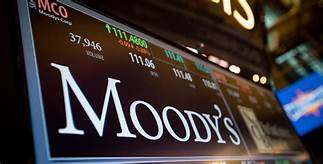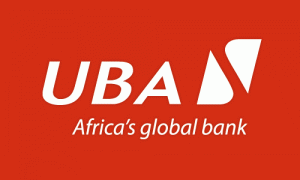Why further Naira devaluation will worsen banks asset quality, others–Analysts

Following the Moody’s Investors Service changes of Nigeria’s banking system outlook from stable to negative, a group of analysts at CSL Stockbrokers Limited has said a further devaluation of naira will worsen banks asset quality, erode capital and foreign currency liquidity.
Responding to “Moody’s changes outlook on the Nigerian banking sector to negative” report, the Lagos based firm said, the outbreak of COVID-19 and the sharp downturn in crude oil prices, which have accelerated capital flow reversals, continue to stoke fears of a further devaluation in the Naira.
Moody’s Investors Service had earlier this week changed its outlook for Nigeria’s banking system from stable to negative.The rating agency had highlighted that the change reflects its view that banks will face weakening loan quality and foreign-currency liquidity challenges as depressed oil prices and the global pandemic weigh on Nigeria’s economy.
Stating its position, analysts at CSL Stockbrokers Limited said, “We say further devaluation because the CBN had in March moved the official exchange rate from N307/$1 to N360/$1.
“At the Investors and Exporters Window (I & E), the CBN also adjusted the Naira peg upwards by 5.7per cent, as it raised its intervention rate to N380 from N366. “Depressed oil prices and subsequent devaluation affect banks in a number of ways.
“First is asset quality: a few sectors show more vulnerability to depressed oil prices and devaluation in the local currency and as such bank lending to these sectors will most likely show signs of strain.
“One of such sectors is the oil and gas upstream/midstream sector. In conversations with banks over the past few weeks, we understand that some banks like Guaranty Trust Bank has hedged its oil and gas exposure over several months while many others believe that it will be possible to restructure these loans – apparently with little effect on asset quality in the short term.
“Second is capital erosion: devaluation, in theory, challenges capital adequacy ratios (CAR) because the Naira-equivalent value of risk-weighted assets (RWA) rises as this includes foreign currency loans.
“However, the weight of foreign currency loans in RWAs is for the most part moderate (35per cent-45per cent), and some banks like FBNH and Guaranty Trust Bank will likely make windfall gains from net long FX positions which in turn boost capital.
“Some banks also have some of their Tier-2 capital in foreign currencies and will, therefore, see an increase in Tier-2 capital if a devaluation occurs.
“However, the CBN rule which restricts Tier-2 capital to only 33.3per cent of Tier-1 capital implies that not all the increase would qualify for the total capital adequacy (Tier-1 plus Tier-2) computation. Overall, we see moderate erosion in CAR for our coverage banks.
“Finally, foreign currency liquidity: Borrowings made by banks in US dollars are problematic under a devaluation scenario.
“As such, banks need to have to perform US dollar assets in order to receive dollars with which to service their own US dollar borrowings.
“The greater the under-performance of dollar assets in cash terms (for example, re-scheduled US dollar loans to the oil & gas sector, with grace periods during which banks do not receive cash) the higher the likelihood that banks will have to find other sources of US dollars to service their own USD denominated borrowings.
“An extreme case is when a bank decides to purchase US dollars with Naira at unfavourable rates in order to service a US dollar obligation.
“We assume however that many banks have access to the supranational lenders, and to development banks for refinancing, which should limit the possibility of the occurrence of the extreme scenario.”








